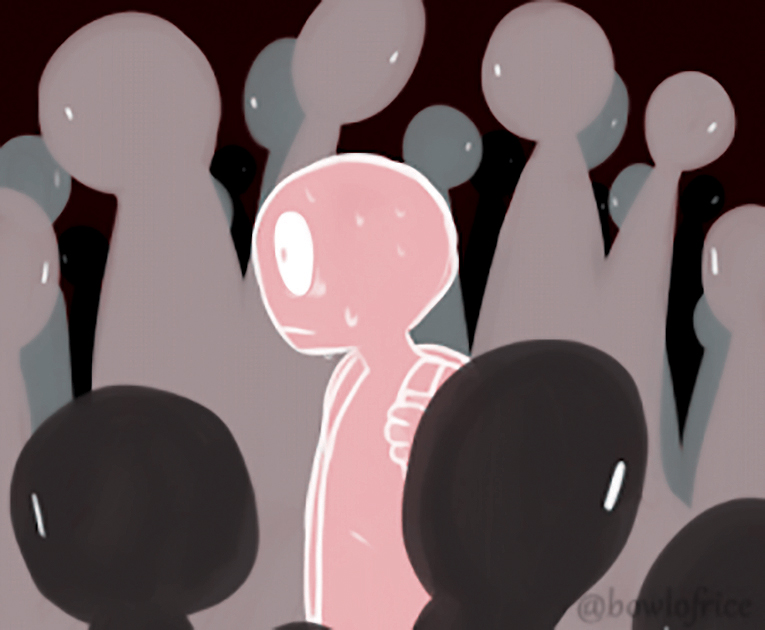Some people become a little nervous when they have to take public transport or visit a government hospital –and there are others who might undergo extreme distress or panic when they encounter large crowds in public places. There is a medical term for this affliction: Agoraphobia.
According to Dr William C Shiel, Chief Editor and co-founder of the medical information website, MedicineNet.com, “Agoraphobia is an abnormal and persistent fear of public places or open areas, especially those from which escape could be a problem. People with mild agoraphobia often live normal lives by avoiding anxiety-provoking situations. In the most severe agoraphobia, the victims may be incapacitated and homebound. Agoraphobia tends to start in the mid to late 20s, and the onset may appear to be triggered by a traumatic event.”
As per an advisory by Fortis Hospital, “An unreasonable fear can be an annoyance — having to take the stairs instead of an elevator, for instance — but it isn’t considered a phobia unless it seriously disrupts your life. If anxiety affects your ability to function at work or socially, consider seeking medical or psychological treatment. Most people can be helped with the right therapy.”
What causes agoraphobia?
The exact causes for agoraphobia have not yet fully discovered. However, there are several contributory factors that are known.
According to a theory, agoraphobia develops in response to repeated exposure to events that provoke anxiety. It is a result of a feeling of emptiness that comes from some unresolved conflicts, which may be family issues or a result of genetic condition. Girls and women are more likely to develop agoraphobia compared to boys and men. It usually begins in young adulthood, with 20 years being the average age of onset.
One of the earliest notable individuals known to have this disorder was Charles Darwin, originator of the Theory of Evolution. The Journal of the American Medical Association speculates that Darwin’s lifelong isolation was a result of panic he felt in public spaces.
A novel by American author Shirley Jackson, We Have Always Lived in the Castle, is believed to be largely inspired by her struggle with agoraphobia.
According to a case study, The Napa State Hospital’s Department of Psychiatry studied the behaviour of “Mrs EL,” a 91-year-old patient. She spent 17 years confined to her bed due to extreme fears of dying, falling, never being found and being accidentally buried alive. Her fear was so intense that she also forbade her husband from going outside.
She lived with her husband and received healthcare at home: medication along with a course of behavioural and exposure therapy. When the therapy concluded, she was able to leave her bed and even her home. Based on this case study, researchers concluded that even the most severe cases of agoraphobia can be treated and rehabilitated, as long as patients have access to a properly coordinated care plan.
How to tackle it
As per Fortis Hospital, “There’s no sure way to prevent agoraphobia. However, anxiety tends to increase the more you avoid situations that you fear. If you start to have mild fears about going places that are safe, try to practise going to those places before your fear becomes overwhelming. If this is too hard to do on your own, ask a family member or friend to go with you, or seek professional help.”
There are specialised treatments available for overcoming agoraphobia, including specific kinds of psychotherapy, as well as several effective medications. A specific form of psychotherapy called Cognitive Behavioural Therapy focused on reducing negative, self-defeating or anxiety-provoking thoughts has proved to be highly effective in treating this disorder. Visiting a psychiatrist who would prescribe medicines and seeking professional help is definitely a good option for curing this disorder.





